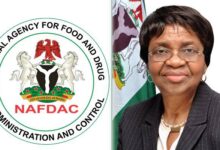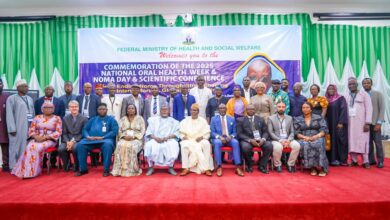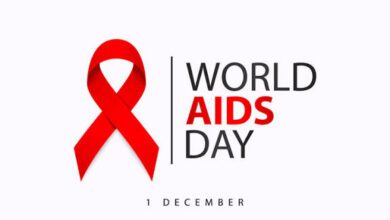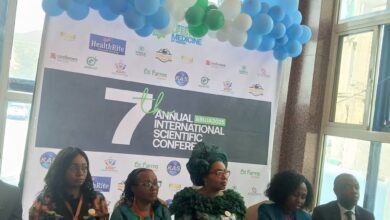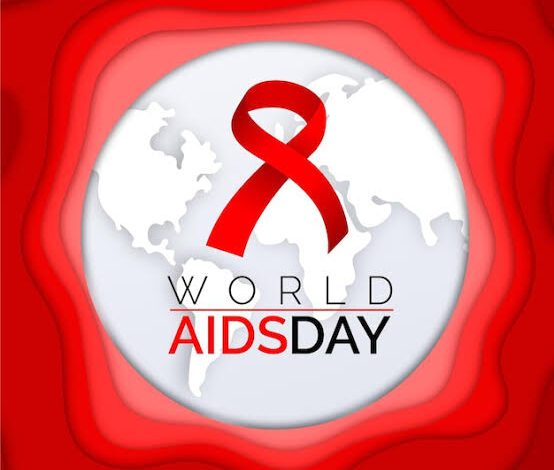
The World Health Organisation (WHO) says African countries have made significant progress in HIV control with about 21.3 million peoplele on antiretroviral treatment, raising their life expectancy.
WHO Regional Director for Africa, Dr. Matshidiso Moeti stated this in her message commemorating this year’s World AIDS Day.
World AIDS Day is marked on December 1st every year to raise awareness of the AIDS pandemic caused by the spread of HIV infection and mourn those who have died of the disease.
Dr. Moeti stated that this year’s theme, “Take the rights path: My health, my right!” was a timely reminder of our responsibility to safeguard human rights as we pursue the goal of HIV elimination by 2030.
She explained that HIV was a complex health challenge, inseparable from social determinants such as poverty, gender inequality and violence, and complicated by stigma and discrimination, especially amongst marginalized populations.
She however, maintained that protecting human rights was a key component of achieving universal HIV care, and breaking down these life-threatening barriers to access.
The WHO Regional Director for Africa noted that African countries had made significant progress, with the change in the trajectory of the epidemic over the past decade evidence of the notable successes in HIV control and response.
This, she noted was despite having the highest HIV burden globally, and comparatively fewer resources to fight the epidemic:
“Remarkable reductions in the number of new HIV infections and AIDS-related deaths are being recorded, with the number of new HIV infections higher outside of sub-Saharan Africa for the first time in 2023.
“The WHO African region is also the leading region globally in advancements towards the achievements of the 95-95-95 UNAIDS HIV testing, treatment and viral suppression targets, aimed at closing gaps in treatment coverage and outcomes.
“Seven countries have already achieved the targets, with the overall rating for the region currently at 90-82-76. About 21.3 million people are now on antiretroviral treatment, raising their life expectancy. Botswana (silver tier status) and Namibia (bronze tier status), meanwhile, have both been recognized for notably curbing mother-to-child HIV transmission rates, achieving the required indicators for the “Path to elimination of HIV” criteria introduced in 2017”, she said.
According to Dr. Moeti, the African Region was also implementing effective biomedical HIV prevention methods, with countries quickly adopting and implementing pre-exposure prophylaxis (PrEP) recommendations, and ensuring increased access to options such as oral and long-acting injectable PrEP, and the dipivefrine vaginal ring.
However, despite the increased availability of scientific knowledge and tools for preventing new HIV infections, and effectively treating people living with HIV, the value of these innovations depends on their universal accessibility.
This, she said was an issue that required further investments and policy reforms going forward.
“We have a collective obligation to protect human rights, specifically ensuring that health care is available to everyone, without any discrimination, regardless of their HIV status, background, gender or where they live. Stigma and discrimination cannot be allowed to undermine the gains and impede our progress.
“Given the achievements, it is indeed possible to eliminate HIV with the combined efforts of governments, partners, health care providers, civil society and, crucially, communities. Communities are key partners in co-creating strategies and jointly implementing interventions to address human rights-related barriers to care, and we must ensure their voices are heard.
“The HIV response is complicated by increasing incidence of disease outbreaks in the African region, which negatively impact our already struggling health systems. As we accelerate our response to the epidemic, it is important that we remain mindful that strong health systems and integrated, person-centred approaches to health care are essential to optimally meet the multiple needs of our vulnerable populations.
“Let’s take this opportunity today to acknowledge the progress, but to also renew our joint commitment to eliminating HIV. By protecting everyone’s right to health, and reducing new HIV infections, we can achieve an AIDS-free generation and ensure the sustainability of the HIV response”, Moeti stated.


